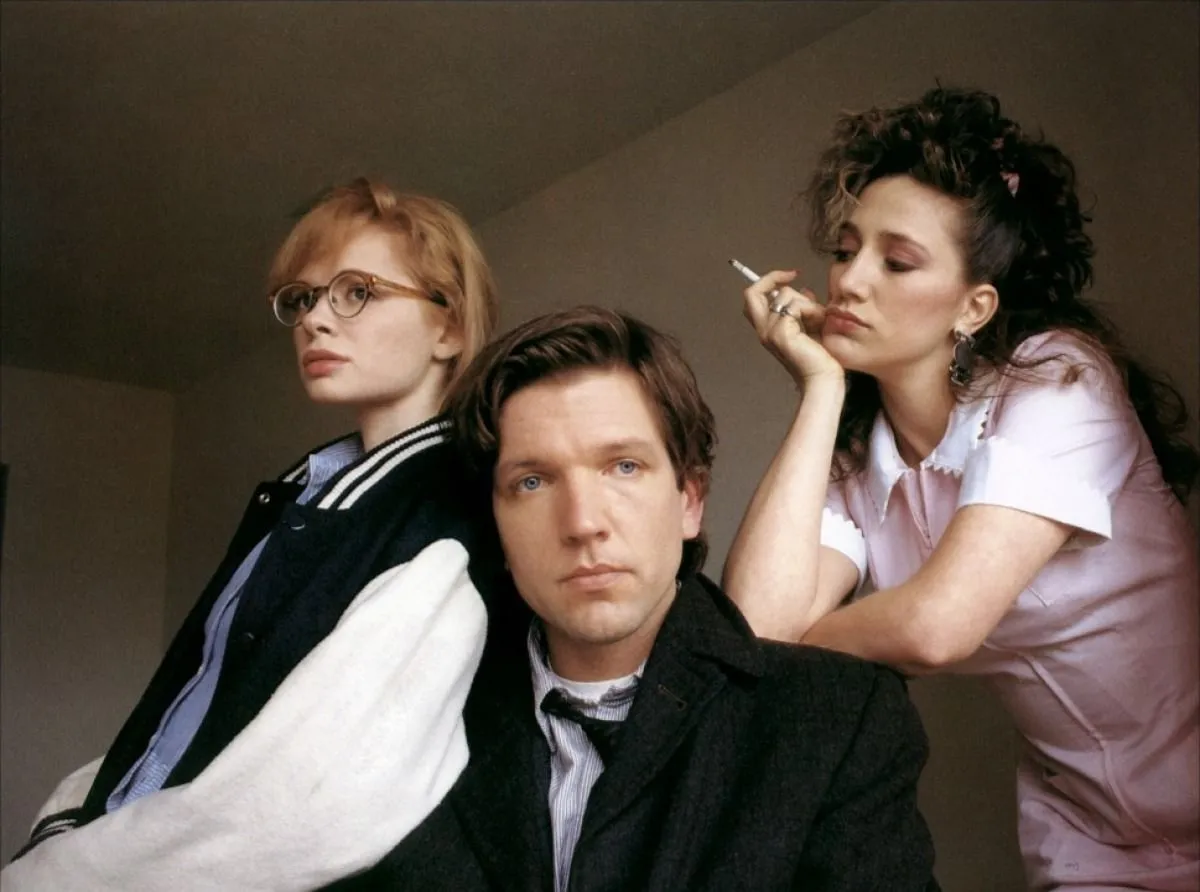The tough life behind the screen, from directors to child actors
The other time I wrote about indie film director Hal Hartley, who was a rising star in the 1990s. So I did a research on his current thereabouts. His apogee seems to have been winning the Best Screenplay Award at Cannes with “Henry Fool” in 1997. You’d think that the prestigious award would assure a long and successful career, with money guaranteed for every project, right?
Wrong. He followed that up with the more experimental “The Book of Life” which was disliked by both public and critics, and never really got into the limelight again. His last movie was a self-financed low-budget production back in 2014. Since then he has dedicated his efforts more towards writing and publishing (like me – ha!). Last year he published his first novel. It’s not exactly a best-seller, but it has good reviews.
Now, this is actually more common than rare in show business, and in particular in the fickle enterprise of movie-making. Even worldwide celebrated directors such as Federico Fellini or Billy Wilder had trouble finding someone to finance their movies in their old age. Then we have the curious case of Francis Ford Coppola, who after an extremely successful career in the 1970s and 1980s, in the 1990s did a cash-grabbing Godfather III which should never have been made, and then a few experimental movies that nobody liked, and thereafter decided to concentrate on making wine and letting the film-making to his daughter. (However, it seems he has a new movie coming up this year, so who knows).
Michael Cimino is famous for making the film that “crashed the Western genre”, Heaven’s Gate (1980). It is actually not a bad movie at all, if a bit long, and incidentally also starring Isabelle Huppert. But the film cost a lot and was a box-office failure, the only unforgivable sin in Hollywood. Despite his previous five Oscars, Cimino’s career never recovered.
For actors and actresses, things are even tougher. People like Isabelle Huppert, still acting in her 70s, are a rare exception. Most crash and burn very early on.
A particular sad case is that of child actors. It’s just a few, like Jodie Foster or Drew Barrymore, who manage to remain successful even as adults. Most do not. Haley Joel Osment and Macaulay Culkin are famous cases of cute child actors who turned out to be not so cute as grown ups, and therefore had no chance in Hollywood, which in the end values more beauty than talent. And of course many of those child and teen actors also had a very troubled youth filled with drugs, alcohol and exploitative parents. Then there is the problem of sexual abuse, which is rampant in Hollywood since at least the times of Shirley Temple. It’s symptomatic that many child actors end up leading pretty screwed up lives.
Other cases have unexpected tragic endings, but through no fault of their own. Adrienne Shelly, who starred in Hartley’s “The Unbelievable Truth” (1989) and “Trust” (1990) and then went on to become a director herself, with films such as the award-winning “Waitress” (2006), had a somewhat random death: she was murdered by an illegal immigrant from Ecuador that was working in the renovation of the building where she had her office. The reasons for the murder are not completely clear, but probably an attempt to rob or rape the actress-director. When “Waitress” premièred in Sundance to glowing reviews, she was no longer alive.
Of course, one could argue that cinema itself is dying a slow death. Back in the 1990s, movies, even independent, low-budget movies, could cause a stir or influence culture. When “Pulp Fiction” came out in 1994, people hardly talked about anything else — and I am far from being a Tarantino fan, but I remember that. Even European directors, while far from their glorious period in the 1960s and 1970s, every now and then managed to cause discussion or surprise. But now? Who even talks about any of that? I and, I suspect, most people, can hardly name the latest Oscar or Cannes winner, if we even hear about the Oscars or Cannes at all. Most productions these days seem to be remakes of other things with a more politically correct casting, or if not mere propaganda, and even the award ceremonies need to create some sort of parallel controversy, such as one actor slapping another, to be noticed.
When was the last time a movie caused some sort of huge cultural impact? I really can’t think of any recent case, certainly not any recent American movie. Perhaps “Parasite” (Bong Joon-ho, 2019), or the pop phenomenon “Squid Game” (Hwang Dong-hyuk, 2021) came close, but those are Korean productions. Sure, you can also say that streaming has somewhat diluted the general impact of movies, and social media diluted the discussion — everyone watches something different in the comfort of their home, and in fact series such as “Breaking Bad” (2008-2013) or the aforementioned “Squid Game” seem to have had more success on the cultural front than movies — but I do think that there is also a more general creative crisis.
Or maybe it’s just me — while you could say I was a movie fanatic in my youth, and went to the movies at least two or three times a week, I don’t really watch all that many things these days.
So, I don’t know. Are there really many new things worth watching?


Never saw Squid Game but Parasite seemed over rated. It appealed to Marxist critics harboring revenge fantasies. Much preferred Boon’s earlier monster movie comedy, The Host.
I’m a fan of the streaming TV series: Sopranos, Breaking Bad, etc. Films don’t have much chance against them. For example I offer The Northman which was a critically acclaimed film, at least in conservative circles, but when I saw it on TV, it paled in comparison to the Vikings series. Films can’t offer anything near the character development afforded by longer narrative arcs.
I think you’re right, Tom, there has definitely been a downturn in good new movies. I never used to like old films, but find myself enjoying them more and more these days – I’ve even become somewhat of a Burt Lancaster fan!
I like to think that we are only temporarily in the cultural doldrums, and that there will be a renaissance in our lifetimes. But we’ll have to get over this “woke” storytelling phase first. In the meantime, the real gems are being formed underground … and will emerge in due course.